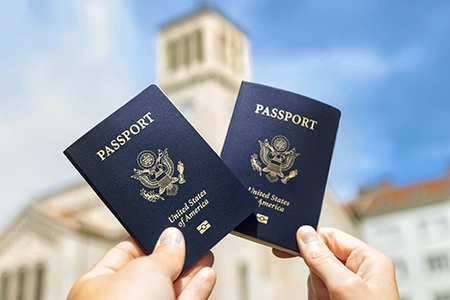Translation accuracy is essential for effective communication and understanding in the technical and scientific fields. As the demand for sharing scientific and technical knowledge across borders increases, translating these texts from English to Turkish becomes increasingly important. A minor mistranslation or a misinterpreted term could lead to significant misunderstandings, potentially affecting research outcomes, technical processes, or even safety protocols.
Translating technical and scientific texts from English to Turkish presents unique challenges. These texts often contain complex jargon, specialized terminology, and concepts that may not have direct equivalents in the target language. In addition, the structural and syntactic differences between English and Turkish pose significant hurdles, requiring language expertise and a deep understanding of the subject matter.
In this discussion, we will focus on the best practices, techniques, and critical considerations that play a pivotal role in ensuring the accuracy and reliability of translations in these specialized fields. From selecting the right translators to utilizing advanced technological tools, this exploration aims to provide insights into navigating the intricate landscape of English to Turkish technical and scientific translation.

Before we begin…
Looking for technical or scientific translation services that are fast, precise, and budget-friendly? Look no further! We offer top-notch translation solutions at unbeatable rates. Contact us now to get a quote and let us help you communicate effectively in any language.
Understanding Technical and Scientific Translation
Translating technical and scientific documents is not just about converting the language. It requires a deep understanding of complicated concepts and specialized terminology used in fields like engineering, medicine, biology, and environmental science. These documents are all about communicating technical and scientific data, methodologies, and findings with precision.
Every single term and unit of measurement in these fields is important. Even a small mistake can lead to serious consequences. It’s not just about translating word-for-word but conveying the intended meaning in the source language. This is especially important because the translations are often used for critical purposes like product manuals, research publications, patent filings, and regulatory documents.
Mistakes in technical and scientific translations can have serious consequences. Inaccurate instructions for medication or medical procedures can result in serious health risks or even death. In engineering or IT, a mistranslation can lead to machinery malfunction, software errors, or system failures. These mistakes can lead to legal trouble, financial losses, and reputational damage.
So, it’s important to understand the high stakes and the precise nature of technical and scientific translation. Accurate translations require a lot of knowledge and attention to detail.
Challenges in English to Turkish Technical Translation
Translators face several challenges when translating technical and scientific documents from English to Turkish. These challenges are related to differences in language, culture, and context and can greatly impact the accuracy and effectiveness of the translated material.
Terminology Differences
One of the main difficulties in translating technical and scientific texts is using specialized language and terminology that may not have direct equivalents in other languages, such as Turkish. This can make finding accurate translations that convey the intended meaning challenging. Additionally, new scientific and technological advances often introduce new terms in English that may not yet be widely used or standardized in other languages, including Turkish.
Syntactic and Structural Differences
Translating text between English and Turkish is not easy because these two languages have different grammatical structures. Turkish is an agglutinative language, meaning it has a unique way of building words by adding suffixes. This differs from English, which has a more straightforward way of constructing sentences. So, when translating, it is crucial to understand the syntax of both languages to ensure that the original meaning and clarity of the text are maintained. This can be especially challenging when dealing with complex scientific sentences.
Cultural Nuances and Contextual Understanding
It’s important to consider cultural differences and the context of the subject matter when translating scientific and technical texts. These documents often mention cultural practices, regulations, or standards specific to a certain region or language. Translators should know these details to ensure they’re accurately conveyed in the translated text. If they’re not, it could lead to confusion or make the text less relevant in the Turkish context.
Impact on Accuracy and Understanding
When translating text from one language to another, some challenges can cause problems. If these challenges are not addressed, the translated text might not make sense or even be wrong. For example, if a technical manual is translated incorrectly, it could cause problems with equipment and be dangerous. Inaccurate translations in scientific research can also cause problems because they change how data is interpreted.
It’s really important to make sure that when we translate technical and scientific information from English to Turkish, we don’t just get the words right but that the translation also makes sense in the context and culture of the people who will be reading it. That way, we can be sure everyone understands what’s being said.
Best Practices for Accurate Translations
Certain best practices must be followed when translating technical and scientific texts from English to Turkish. These practices are very important to overcome the challenges of translating technical content and ensure that the translation is accurate, clear, and easy to understand. By adhering to these practices, the translation can be made more accessible and useful for a wider audience.
Thorough Research and Use of Specialised Resources
It is important to conduct thorough research when it comes to translating texts. This means understanding what is written and studying the broader context of the topic. Translators should use specialised dictionaries and glossaries for the field of the text they are working on to ensure that the words used are accurate and up-to-date. Additionally, it is helpful to speak with experts in the field to understand better the technical details and language used in the text.
Profound Understanding of the Subject Matter
For translation to be accurate, translators must understand the material they’re working with. This is especially true when it comes to technical and scientific concepts. Having this knowledge allows translators to choose the best words and phrases in Turkish to convey the intended meaning of the source material. It also helps them to understand what the text is trying to achieve, whether it’s to teach, inform, or explain complex ideas.
Emphasising Context and Localisation
When it comes to translation, it’s not just about converting words from one language to another. Context and cultural differences also play a critical role, particularly in technical or scientific texts. This means that the translator needs to have a good understanding of the target audience and their local standards and regulations. For example, when translating technical documents into Turkish, the translator may need to explain certain technical terms or measurements differently that are more familiar to the Turkish audience. Ultimately, the goal is to ensure the content is accurately translated culturally and contextually appropriately for the intended audience.
Consistency and Clarity
It’s really important to use the same words and phrases when discussing things, especially when writing long and complicated documents. It can get pretty confusing if we use different words to mean the same thing or the same words to mean different things! To ensure everyone understands what we mean, we can create a special list of words we’ll use and ensure we stick to it. This way, we can ensure we’re all on the same page!
Quality Control and Proofreading
Ensuring that translations from English to Turkish in technical and scientific fields are accurate and easy to understand is important. This can be done by checking the translation for accuracy and ensuring it matches the original text’s intended meaning and style. It is also helpful to have someone with expert knowledge in the relevant field review the translation. By following these best practices, translators can create reliable and clear translations useful for anyone who needs to read them.
Role of Professional Translators and Subject Matter Experts
It’s not enough to just know the language when you need to translate technical and scientific documents from English to Turkish. You also need specialized knowledge and expertise. That’s where professional translators and subject matter experts come in. They play a crucial role in ensuring that the translations are accurate, easy to understand, and relevant to the intended audience. So, if you want to make sure your technical documents are translated properly, it’s important to work with experts who can ensure that the message is clear and easy to understand.
Importance of Professional Translators with Technical and Scientific Expertise
Translation is not just about converting words from one language to another. When it comes to technical and scientific fields, it requires a whole different set of skills. Professional translators with expertise in these areas deeply understand the specific terminologies and concepts used. They are not only great at translating but also can interpret complex technical information in a way that is easy to understand. These translators are trained to handle the intricacies of technical texts, ensuring that the translation is accurate and true to the original content.
Role of Subject Matter Experts in Ensuring Accuracy
The translation process is not just about converting words from one language to another – it’s about ensuring that the meaning and technical details are accurately conveyed. That’s where subject matter experts come in. These professionals understand the languages and have expertise in a specific field, such as medicine, engineering, or science. They play a crucial role in verifying that the translations are accurate and relevant to the original document. This is especially important in technical documents where precision is key. Subject matter experts ensure that important details, data, and conclusions are not lost in translation, so you can trust that the content you receive is reliable.
Collaborative Effort for Optimal Results
Collaboration between professional translators and subject matter experts is usually the best way to ensure accurate translations. The translator takes care of the language part, making sure everything is grammatically correct and suitable for the target audience. The subject matter expert, on the other hand, ensures that the technical aspects are accurately translated and the content is relevant. This teamwork is critical in avoiding mistakes resulting from a lack of technical knowledge or language nuances.
Continuous Learning and Staying Updated
Learning is a continuous process for translators and experts in technical and scientific fields. These fields are constantly evolving, with new concepts and terminologies emerging frequently. Translators and experts must stay updated with these changes to ensure that translations accurately convey the intended meaning and are relevant to the subject matter.
In summary, the collaboration between professional translators with technical and scientific expertise and subject matter experts is crucial for accurate and relevant translations of technical and scientific texts from English to Turkish. Together, they ensure that translations are linguistically correct, technically precise, and appropriate.
Technological Tools and Resources
Technology can be very helpful when technical or scientific documents need to be translated from English to Turkish. Using advanced tools and resources can make the translations more accurate and efficient. These tools are useful for translators and help them do a better job.
Translation Memory Systems
Translation memory systems are tools that help translators work faster and more accurately. These systems store previously translated parts of text in a database. When a similar part of text appears in a new document, the system suggests a translation that has already been approved. This is especially helpful for technical and scientific documents with many repeating words and phrases. Translation memory systems help ensure that translations are consistent, save time, and reduce the effort needed to translate similar content.
Terminology Management Tools
Managing technical and scientific texts requires specialized vocabulary. To ensure accuracy and consistency in translations, it’s important to have a central repository of terms specific to particular projects or fields of study. Terminology management tools help create and maintain comprehensive glossaries, which are particularly important in fields where precision in terminology is crucial. By avoiding inconsistencies and errors that may arise from misusing technical terms, these tools help produce high-quality translations.
Machine Translation and CAT Tools
Translation is not easy, and technology has made it easier with Machine Translation (MT) and Computer-Assisted Translation (CAT) tools. While MT can provide a basic text translation, CAT tools help translators improve and refine the translations. It’s important to note that machine translation should be used carefully, especially regarding technical and scientific translations. The role of the translator is to review, edit and make sure that the machine-generated translation is accurate and makes sense in the context.
Complementing the Translator’s Skills
Technology has given us tools that can help translators do their job better. These tools are not meant to replace the translator’s expertise but complement it. They can help the translator quickly find relevant information, ensure consistency, and save time on repetitive tasks. However, the translator’s knowledge, judgment, and understanding of context are still very important. A skilled translator uses these tools to improve their work and ensure that the final translation is accurate, technically correct, and suitable for the context.
Continuous Adaptation and Learning
As the world becomes more technologically advanced, translators must keep up with the latest tools and resources. This is especially true in science and technology, where accurate translations are essential. By using technology effectively, translators can improve the quality and speed of their work, helping them better serve their clients. Ultimately, technology is a valuable tool that can support and enhance the skills and knowledge of professional translators, making it easier for them to provide accurate and effective translations.
Further Reading
For those seeking to expand their knowledge in the field of English to Turkish technical and scientific translation, we highly recommend the following online resources:
- ATA Webinars: The American Translators Association offers webinars that often cover technical and scientific translation topics. These can be beneficial for understanding best practices and industry standards: ATA Webinars
- Journal of Specialised Translation (JoSTrans): This journal publishes articles on translation studies, including technical and scientific translation. It offers free access to all its issues and is a valuable resource for research and practice: JoSTrans
- TED Talks on Language and Translation: TED Talks provide insightful discussions on language and translation that can be relevant to technical translators. They offer a broader understanding of the complexities and nuances of translation work: TED Talks – Language
Follow Us on Your Favourite Social Network

Before you go…
Looking for superior translation services that are fast, precise, and budget-friendly? Look no further! We offer top-notch translation solutions at unbeatable rates. Contact us now to get a quote and let us help you communicate effectively in any language.



